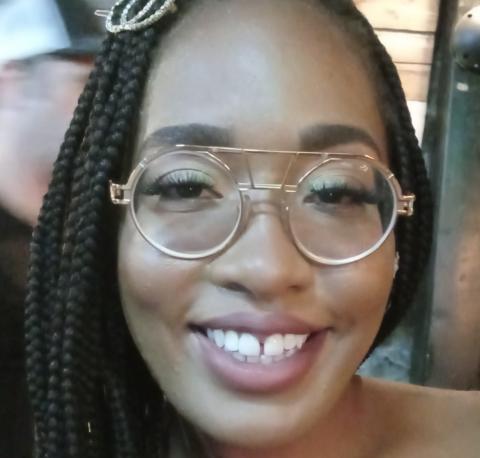
Jamaica Brickhouse
Reflections on Black History Month: Jamaica Brickhouse
[February is Black History Month. For the month of February, RESULTS is sharing a series of spotlights of some of our staff and volunteers in the Black community. This post features Jamaica Brickhouse, a RESULTS advocate in Wilmington, Delaware.]
I am not a stranger to adversity. I grew up as the oldest of five children in a single-parent household. Through each phase of my life, I have experienced some type of homelessness and poverty knowingly or unknowingly. Like most people in my community, I have quietly dealt with the effects of systemic racism and oppression, whether I was seeking employment, housing, or in the criminal justice system. For a long time, I did not know how to help myself and others on a larger, more impactful scale.
After losing my employment last year at the peak of the pandemic, I did not know what I was going to do. To my dismay, no one was hiring due to restrictions put in place to maintain social distancing guidelines and safeguard the public. I did not panic though. I have been here before, worrying about how bills will get paid, what I would eat, and where I would live if I could not pay rent, all while being employed. I knew that making decisions that were not wise would cause an adverse effect, and because I am Black the consequences would be harsher.
I do not allow my experiences to overshadow my strengths, but instead use my strengths and my voice to influence change and inspire others to do the same. Discussing oppression and systemic racism amongst friends, family, and co-workers is the only way we can hope for change.
Many advocates near and far have inspired me. Before I began my advocacy journey, I was inspired by Martin Luther King, Jr., James Baldwin, and Harriet Tubman. I am inspired by King’s successful organizing techniques and non-violent approach, Baldwin’s way of articulating the feelings of Black oppression through art and literature, and Tubman for her influence, relationship building, and courage to travel the Underground Railroad to free enslaved people. What they have in common is that none of them started as advocates or activists. They used their voices and experiences of being Black in not only in America, but in the world to ignite a drive and a passion for others to use their voices for change. The contributions of Black people in advocacy should be celebrated.
Celebrating advocates not only shows appreciation but motivates current and future generations to take the next step in creating the change that is needed at that moment in time. We’ve seen an emergence of new advocates and organizations dedicated to seeking equality for us all. One example is Black Girls Rock, created by Beverly Bond to celebrate the contributions of Black women in different fields, from music to medicine. Another is Mayora Carter who took her vision to see change in her community and created job training and placement in urban communities. And there are so many more examples.



The views and opinions expressed in this post are those of the author(s) and do not necessarily reflect those of MomsRising.org.
MomsRising.org strongly encourages our readers to post comments in response to blog posts. We value diversity of opinions and perspectives. Our goals for this space are to be educational, thought-provoking, and respectful. So we actively moderate comments and we reserve the right to edit or remove comments that undermine these goals. Thanks!